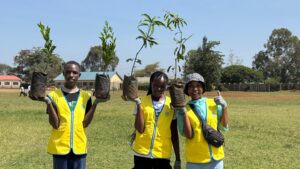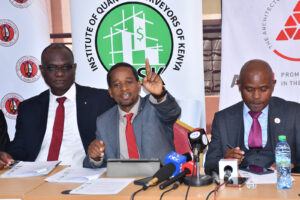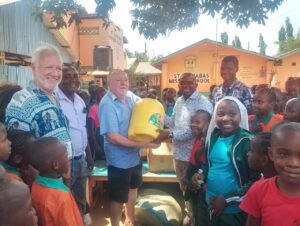Prosecution Closes First Case Against Shakahola Massacre Suspects

Tononoka Children’s Court. (Photo/ Courtesy)
By Halima Kalisho
Email, thecoastnewspaper@gmail.com
The prosecutions has closed its case against Shakahola massacre prime suspect Paul Nthenge Mackenzie and 34 others charged with subjecting children to torture, cruelty, and denial of basic education.
Tononoka Children’s Court principal magistrate Nelly Chepchirchir closed the prosecution case after hearing 76 witnesses, including 16 protected witnesses among them 13 children.
The prosecution presented 112 exhibits to support its case, ranging from expert reports, literature, photographs, and videos.
The first witness took the stand on July 24, 2024, while the last one testified on September 19, 2025 bringing the hearing period to one year and one month.
Witnesses included survivors of the Shakahola massacre, relatives of victims, and accused persons.
Investigators who pieced together evidence over several months also testified a long side first responders, arresting officers, medics, caregivers, and pathologists who conducted postmortems on the victims.
The Children’s Court case captured the voices of young survivors who recounted the horrors they endured under Mackenzie’s cult.
Among the key testimonies was that of children’s officer Omar Mohamed who told the court how three minors rescued from Shakahola had been withdrawn from school and forced into fasting rituals.
The children were found severely malnourished, but have since received treatment, counselling and re-enrolment into school, with one girl now thriving in secondary school.
Senior sergeant Cyrus Irungu, one of the first responders, narrated how he encountered a frail boy being carried by his grandmother from the forest.

When asked about his siblings, the child pointed to a flattened patch of land, a chilling indication that his brothers and sisters had been buried there.
Clinical psychologist Dr Florence Mueni, led other psychologists and counselors in testifying how many of the rescued minors continue to suffer long-term trauma.
They presented findings of nightmares, withdrawal, traumatic grief and fear.
Several children never attended school, citing Mackenzie’s sermons and broadcasts on Time TV that condemned both formal education and medical treatment.
Forensic evidence was central to the case where Henry Kiptoo, a government analyst at the Government Chemist Department in Nairobi, produced laboratory reports on samples collected from exhumed bodies and the crime scene, linking them to malnutrition and prolonged starvation.
Senior forensics investigator chief inspector Joseph Kolum of the Anti-Terrorism Police Unit (ATPU) produced a comprehensive 74,658-page forensic report from Mackenzie’s two mobile phones.
Using the Universal Forensic Extraction Device (UFED), Kolum extracted conversations between Mackenzie and his followers centering on fasting, prophecy, the antichrist, the beast, the new world order, and the number 666 — themes that prosecutors argued were central to the indoctrination of children and the justification for extreme practices such as starvation.
Their testimonies, alongside that of Dr Richard Njoroge, a government pathologist who conducted postmortems, reinforced the prosecution’s claim that the deaths were systematically orchestrated.
Relatives of victims gave emotional accounts of fractured families. One witness, a boda boda rider from Kiambu, recalled how his wife left with their four children under Mackenzie’s influence and later returned with fewer children before vanishing completely.
The court is now expected to set a date for submissions on whether Mackenzie and his co-accused have a case to answer before delivering its ruling.

Mackenzie and his co-accused still face three other cases manslaughter before the Mombasa chief magistrate’s court, radicalization-related charges before the Shanzu Law Courts, and a murder case before the High Court.
The prosecution team includes assistant director of public prosecutions Jami Yamina and Ngina Mutua, principal prosecution counsels Juma Owiti and Betty Rubia and Prosecution Counsels Biasha Khalifa and Eunice Odongo.







